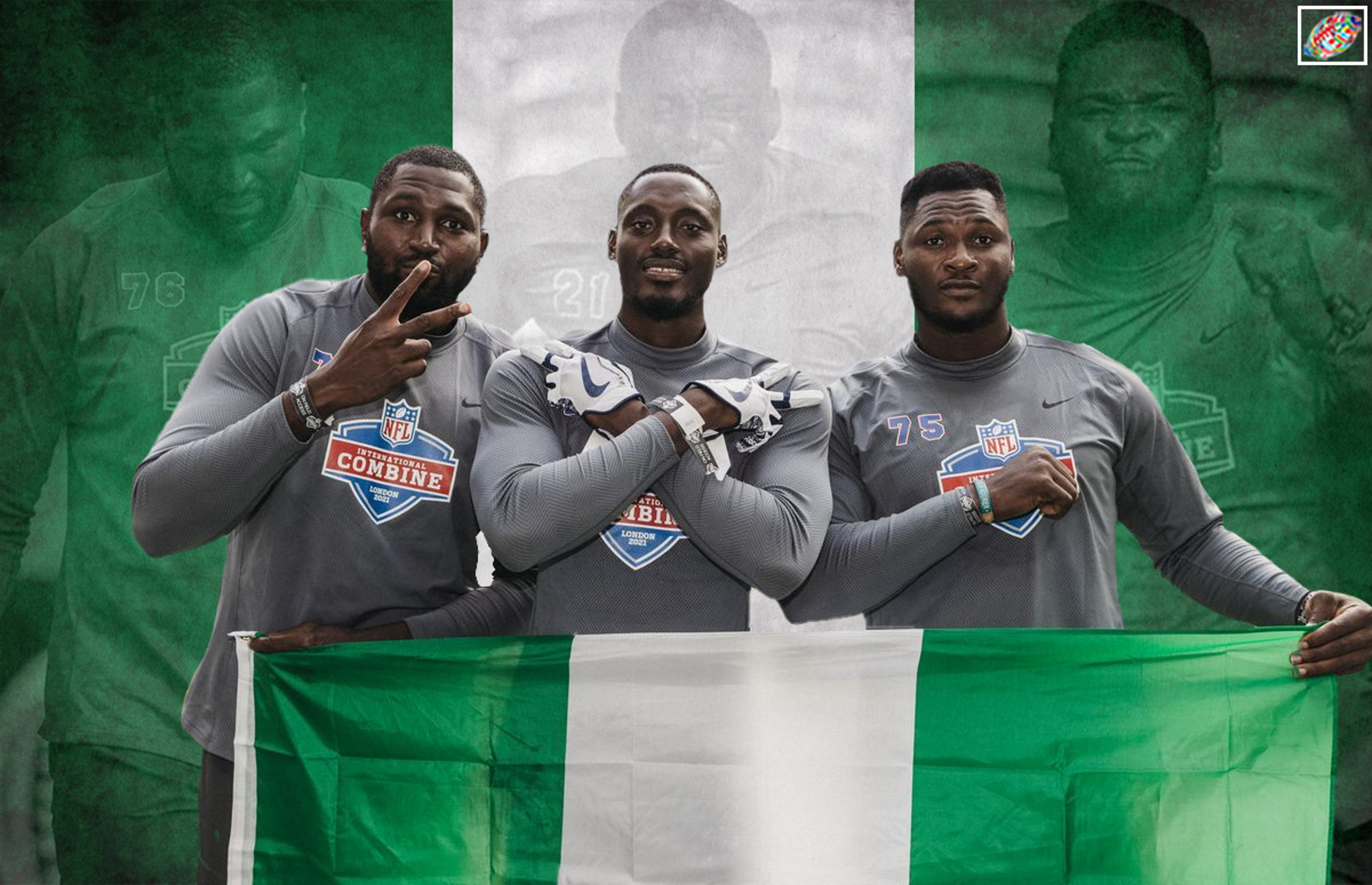
A tremendous 67% of Nigerians watch Football, which shows how much the sport affects Nigerian culture. Football's journey in Nigeria began over 100 years ago, shaping the nation's sporting landscape.

Football in
nigeria football association go back to the early 1900s. British colonisers brought the sport to the nation in 1904. The very first recorded football match happened that very same year, kicking off Nigeria's abundant footballing history.
By 1950, Football had actually become Nigeria's national video game. Its fast rise resulted in lots of clubs and associations forming in the early 1900s. This growth increased Nigerian pride and helped influence political
liberty movements.
Nigeria's football tradition now reaches beyond its borders. Over the years, the nation has produced world-class skill, and Nigerian youth groups have won the FIFA U-17 World Cup 5 times.
The Super Eagles, Nigeria's national team, are a force in African Football. They often qualify for significant competitions and make their mark worldwide.
The British Colonial Introduction of Football to Nigeria
Football showed up in Nigeria throughout the British colonial age. It quickly recorded the hearts of residents, marking the start of a rich footballing tradition in the country.
The First Football Match in 1904
The first football match in Nigeria took place in June 1904. It was between Hope Waddell Training Institution and the crew of HMS Thistle. The Nigerian group won 3-2, stimulating an across the country enthusiasm for the sport.
Hope Waddell Training Institution vs HMS Thistle
I hope the Waddell Training Institution in Calabar played an essential role in early Nigerian Football. Their success over HMS Thistle's team revealed the skill of
Nigerian players. This match set the stage for Football's development in the nation.
Early Football Club Formation (1906-1932)
After the 1904 match, Football's popularity skyrocketed. From 1906 onwards, early football clubs started forming,
became a symbol and this grassroots movement spread the sport throughout
nigeria professional football league.
The Lagos District Amateur Football Association (LDAFA) was established in 1932. The LDAFA marked the start of organised Football in Nigeria and paved the way for the sport's future success nationally and globally.
Who Introduced Football in Nigeria
Football got here in Nigeria in the early 20th century. British colonisers brought this beloved sport to the West African country. It rapidly became a passion that formed Nigeria's sporting landscape for generations.
Function of British Colonisers
British colonisers played a vital role in Nigeria's
football history. The very first taped match occurred in June 1904. Hope Waddell Training Institution dealt with the crew of HMS Thistle.
The Nigerian team won 3-2. This success marked the beginning of an abundant football tradition in the nation.
Development of First Football Association
The Lagos District Amateur Football Association (LDAFA) was developed in 1932. It laid the
groundwork for organised Football in Nigeria, which led the way for the Nigerian Football Association (NFA).
The NFA was founded in 1945. It ended up being the national governing body for Football and supervise its development across the nation.
Development of Local Football Culture
Football rapidly took root in Nigeria, ending up being the national sport by 1946. Its ease of access and easy rules assisted it spread rapidly. Regional neighborhoods embraced the game, forming their groups.
This grassroots enthusiasm laid the foundation for Nigeria's future success. The nation's passion for Football grew, leading to achievements on the global phase.
"Football ended up being more than just a sport; it progressed into an important Nigerian culture and identity element."
The British colonisers' introduction of Football triggered a sporting revolution in Nigeria. Football's journey mirrored the country's growth from the first match in 1904 to the formation of the NFA in 1945.
Today, Football stays an important part of Nigerian life. It's a testament to the sport's enduring appeal and cultural significance in the nation.
The Rise of Nigerian Football Administration
The Nigerian Football Association (NFA) was developed in 1945. It played an essential function in shaping Nigerian Football. In 1949, the NFA formed Nigeria's first nationwide football team.
In 1959, Nigeria joined the Confederation of African Football (CAF), which enabled it to take part in continental tournaments. Nigeria likewise ended up being a FIFA member in 1960, joining the global
professional football league community.
The NFA, later renamed the Nigeria Football Federation (NFF), organised national competitions. They produced the Nigerian Premier League and the Federation Cup, which became the highlights of domestic Football.
Football associations throughout Nigeria thrived under the NFF's guidance. They supported skill and promoted grassroots advancement. Expert Football started in 1990 with sixteen club sides taking part.
"Our objective is to restore football development at the nationwide level and repackage the league in line with worldwide finest practices," states the
Nigeria National League.
The Premier League was implemented in 2003. This relocation aimed to enhance domestic
professional football league requirements and bring in more viewers and sponsors to national competitions.
Nnamdi Azikiwe's Impact on Nigerian Football
Nnamdi Azikiwe, born in 1904 in Zungeru, Northern Nigeria, left an indelible mark on Nigerian Football. His influence formed the country's sporting landscape. Azikiwe's passion for sports originated from his diverse experiences and education abroad.
Establishment of Zik's Athletic Club
In 1938, Azikiwe established Zik's Athletic Club (ZAC) in Lagos. This club became a symbol of African self-determination. ZAC played a vital function in establishing Nigerian Football.
It offered a platform for young
professional football league athletes to showcase their abilities. The club promoted regional talent and promoted a sense of national pride.
The West African Pilot's Influence
Azikiwe's newspaper, the West African Pilot, played a considerable function in popularising Football across Nigeria. It thoroughly covered regional matches, group news, and player profiles. This limelights assisted grow the sport's fan base.
Football as a Tool for Independence
Azikiwe saw Football's prospective as a unifying force in the self-reliance motion. He used the sport to break down ethnic barriers, and
Football became a symbol of Nigerian unity through his advocacy.
Azikiwe's efforts connected Football to nationalism, contributing considerably to the sport's growth and shaping its role in contemporary Nigeria.
"Football is not simply a video game; it's an effective national unity and identity tool."
Nigeria's Journey to International Football Recognition
Nigeria's football journey took a significant leap forward in 1960. The country acquired FIFA membership, marking its entry into international Football. This milestone accompanied Nigeria's independence from British rule.
FIFA Membership and First International Match
Nigeria's very first worldwide match took place on 8 October 1949. They dealt with Sierra Leone and won 2-0 in a historic encounter. This triumph triggered interest for Football across the country.
Early Continental Competitions
Nigeria debuted in the Africa Cup of Nations in 1963. The tournament, hosted by Ghana, saw Nigeria facing tough opponents. These experiences proved important for the team's growth.
Nigeria's determination paid off in 1973. They clinched gold at the All-Africa Games, marking their very first major continental success. 1976, they secured bronze at the Africa Cup of Nations in Ethiopia.
Nigeria's football expertise grew in the 1970s. In 1978, they duplicated their bronze medal feat in Ghana. 1980, Nigeria hosted and won its first Africa Cup of Nations title.
Development of Nigerian Football Governance
Nigerian football governance has seen significant changes and challenges because 1945. The
Nigeria Football Federation has shaped the country's football landscape, and its journey has actually been intricate and transformative.
From NFA to NFF
The
Nigeria Football Association began in 1945. It became the
nigeria national Football Federation in 2008. This modification aimed to modernise the organisation's structure.
In 2019, a costs was passed to acknowledge the NFF formally. It's still awaiting presidential approval.
Development of League Systems
The NFF oversees 3 main leagues: the Nigerian Premier League, Amateur League, and Women's League. These competitors form the foundation of Nigerian Football.
They cultivate talent and promote the sport nationwide. However, challenges like postponed seasons and venue disagreements persist.
National Team Formation
Nigeria's Super Eagles national team was formed in 1949. They've gotten approved for six FIFA World Cups and won 3 Africa Cup of Nations titles.
These accomplishments have actually improved Nigeria's standing in international Football. The Super Eagles' success has actually put Nigeria on the global football map.
However, Nigerian Football faces continuous challenges. A research study revealed high levels of corruption in football governance. This impacts contract awards and gamer selection.
These problems highlight the requirement for reform. For the sport to prosper, transparency in the Nigerian football administration must improve.
Conclusion
Nigerian Football's tradition showcases the nation's durability and enthusiasm. It began in 1904 with Hope Waddell Training Institute dealing with HMS Thistle. Since then, Nigeria has become a powerhouse in African Football.
The sport's growth shows the nation's journey from colonial guideline to self-reliance. It has actually cultivated a sense of
national identity and unity. Nigeria's global football acknowledgment is undeniable.
The Super Eagles' gold medal at the 1996 Atlanta Olympics is an emphasize. Their outstanding FIFA
World Cup performances also stand out. Nigeria has actually qualified for six World Cups.
In 1994, Nigeria achieved its greatest FIFA ranking of 5th, solidifying its place on the international phase. Nigerian Football continues to develop with appealing potential customers.
Skills like Ahmed Musa and Kelechi Iheanacho shine in top European leagues. This bodes well for the sport's advancement. The Nigeria Football Federation guides the video game's progress.
Football's sustaining legacy in Nigeria inspires
upcoming generations and guarantees an exciting future for the sport. The beautiful video game stays a source of nationwide pride and unity.
FAQ
Who presented football to Nigeria?
British colonisers brought Football to
Nigeria in the early 1900s. The sport quickly became popular and woven into Nigerian culture.
When was the first football match played in Nigeria?
The first taped football match in Nigeria occurred in June 1904. Hope Waddell Training Institution bet the HMS Thistle team. The Nigerian team won 3-2.
How did Football end up being Nigeria's national sport?
Football's easy rules and ease of access made it popular in Nigeria. By 1950, it was the national game, motivating pride and freedom motions.
What function did Nnamdi Azikiwe play in Nigerian Football?
Nnamdi Azikiwe, Nigeria's very first President, was important in establishing Football. He began Zik's Athletic Club in Lagos in 1938, and his newspaper, the West African Pilot, connected Football to the self-reliance movement.
When did Nigeria sign up with FIFA?
Nigeria became a FIFA member in 1960, the exact same year it acquired self-reliance. This significant Nigeria's main entry into international football governance.

What is the Nigerian Football Federation?
The
Nigerian Football Federation (NFF) governs Football in Nigeria. It developed from the Nigerian Football Association, established in 1945. The NFF arranges nationwide leagues and competitors, including the Premier League and Federation Cup.
What major successes has Nigerian Football accomplished?
Nigeria has played in 6
FIFA World Cups. The Super Eagles national team has won 3
African Cup of Nations. They've likewise won gold in the 2nd All-Africa video games.












